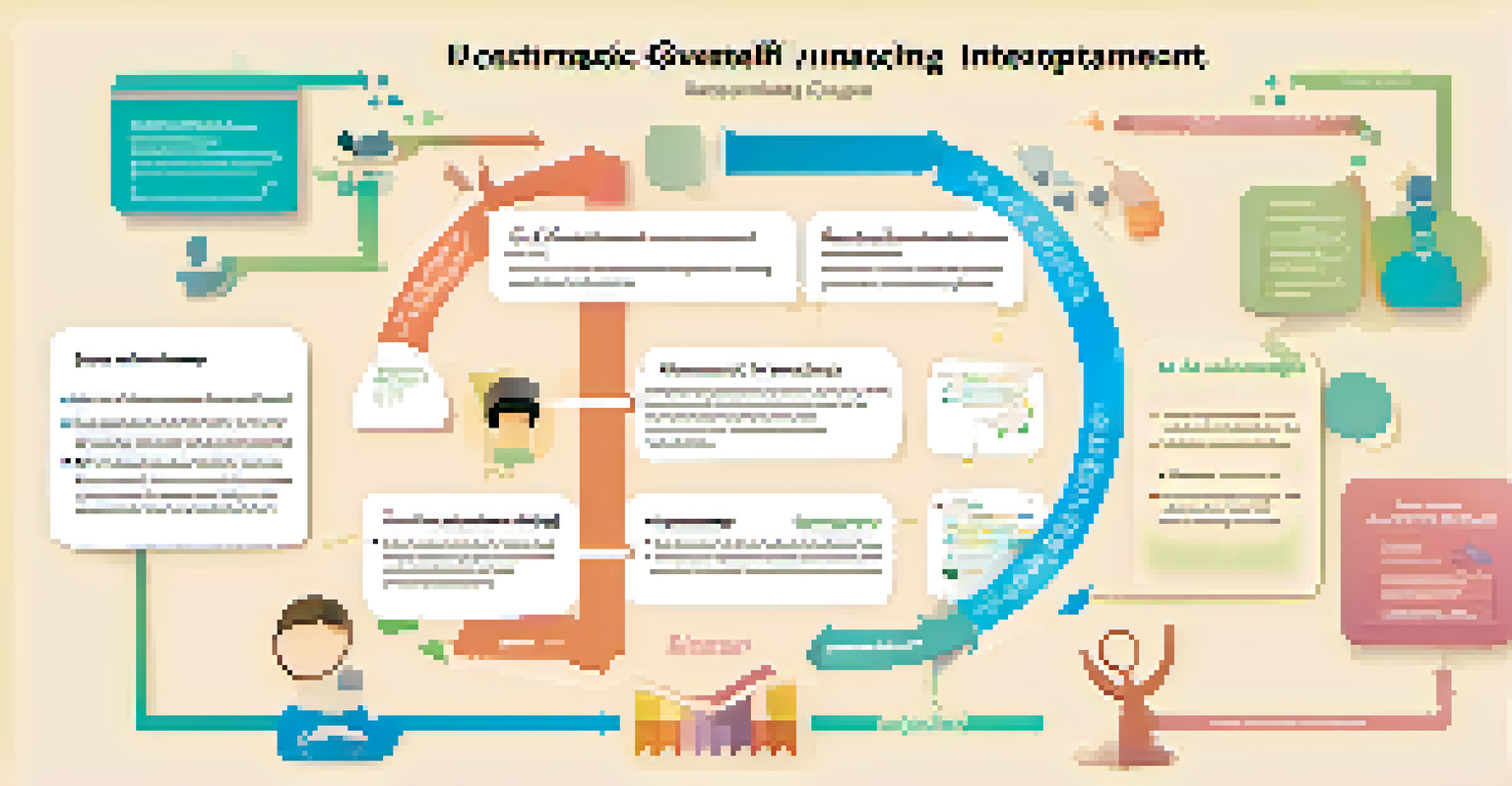Navigating Genetic Counseling for Rare Diseases

What is Genetic Counseling and Why is it Important?
Genetic counseling is a process that helps individuals and families understand genetic conditions. It involves discussing the risks of inherited diseases, which can be particularly valuable for those dealing with rare diseases. By providing information and support, genetic counselors empower patients to make informed decisions about their health.
Genetic counseling is not just about understanding genes; it's about understanding your family's health and making informed decisions for the future.
For families facing rare diseases, genetic counseling can clarify what testing options are available and what the results might mean. Counselors help decipher complex genetic information, making it more accessible and understandable. This clarity can be crucial in a landscape where uncertainty often prevails.
Moreover, genetic counseling addresses emotional aspects, offering support for individuals who may be dealing with anxiety or fear about their genetic risks. Having a professional guide through this journey can alleviate some of the stress and provide a sense of direction.
Who Should Consider Genetic Counseling?
Anyone with a family history of rare diseases or unexplained medical issues should consider genetic counseling. If you or a loved one has been diagnosed with a rare condition, seeking counsel can help you understand the implications for other family members. This proactive approach can be key in early detection or prevention strategies.

Additionally, individuals contemplating starting a family may find genetic counseling beneficial. It can provide insights into potential hereditary conditions that could affect future children. In this way, it empowers parents with knowledge to make informed choices.
Genetic Counseling Empowers Decisions
Genetic counseling provides crucial information and support, helping individuals and families understand genetic risks and make informed health choices.
Even if there’s no apparent family history, some may still benefit from counseling due to environmental or lifestyle factors. Genetic counselors can evaluate these variables, guiding individuals on their unique risks and options.
The Genetic Counseling Process Explained
Typically, the genetic counseling process begins with a detailed family health history. This step is crucial as it lays the foundation for understanding potential genetic risks. Counselors often use pedigree charts to visualize and analyze hereditary patterns.
Knowledge is power, especially when it comes to our health. Genetic counseling empowers individuals to make choices based on their unique genetic makeup.
Following this, the counselor will discuss appropriate genetic tests based on the family history and individual circumstances. This could involve blood tests, saliva samples, or other methods to gather genetic information. The goal is to provide clarity regarding the presence of certain genetic markers related to rare diseases.
After testing, the counselor will help interpret results and discuss the next steps. Whether results are positive or negative, having a professional to guide you through the implications can make a significant difference in how you navigate your health journey.
Understanding Genetic Test Results
Interpreting genetic test results can be daunting, but genetic counselors play a vital role in simplifying this process. They help individuals understand what the results mean in the context of their family and personal health. This understanding can guide decisions about monitoring, treatment, or preventive measures.
It's important to remember that not all genetic tests provide a definitive answer. Some results might indicate a risk without confirming a diagnosis, leading to further questions and considerations. Counselors can help manage this ambiguity and provide resources for coping with uncertainty.
Accessibility and Future Growth
Advancements in technology and increased public awareness are making genetic counseling more accessible and likely to expand in response to growing demand.
In cases where a genetic condition is confirmed, counselors can assist in planning for care and management, connecting families with specialists and support groups. This holistic approach ensures that individuals and families are not left to navigate the complexities alone.
Common Myths About Genetic Counseling
One prevalent myth is that genetic counseling is only for those with a known genetic condition in the family. In reality, anyone interested in understanding their genetic risks can benefit from counseling. It's a valuable resource for anyone curious about their genetic health, regardless of family history.
Another misconception is that genetic testing is always conclusive. While tests can provide critical insights, they often come with limitations and uncertainties. Genetic counselors are essential in clarifying these nuances and ensuring patients have realistic expectations.
Lastly, some people fear that genetic counseling will lead to discrimination or stigmatization. However, counselors prioritize confidentiality and ethical considerations, ensuring that individuals feel safe throughout the process. Addressing these myths can encourage more people to seek the support they need.
Finding the Right Genetic Counselor
Choosing the right genetic counselor is vital for a positive experience. Look for professionals who are certified by recognized organizations, as this ensures they meet specific educational and ethical standards. Recommendations from healthcare providers or patient advocacy groups can also be valuable in finding qualified counselors.
Consider the counselor's experience with rare diseases, as this specialization can make a significant difference. Those familiar with your specific condition may have tailored insights and resources that can enhance the counseling experience. Don’t hesitate to ask about their background and approach during your initial consultation.
Myths Surrounding Genetic Counseling
Common misconceptions about genetic counseling, such as its exclusivity to known conditions and the conclusiveness of tests, can deter individuals from seeking valuable support.
Lastly, trust your instincts. A good genetic counselor should make you feel comfortable and respected, creating an environment where you can openly discuss your concerns and questions. Building this rapport is essential for effective support throughout your genetic counseling journey.
The Future of Genetic Counseling in Rare Diseases
As advancements in genetic research continue, the field of genetic counseling is evolving rapidly. New technologies and discoveries are paving the way for more personalized approaches to healthcare. This evolution holds the promise of better outcomes for patients with rare diseases.
Telehealth options are also gaining traction, making genetic counseling more accessible, especially for individuals in remote areas. This shift allows more people to benefit from these essential services without geographical barriers. Future developments may further enhance accessibility and the quality of care.

Moreover, as public awareness of genetic disorders grows, the demand for genetic counseling is likely to increase. This shift may encourage more healthcare professionals to specialize in this area, ultimately improving the support available for families facing the challenges of rare diseases.